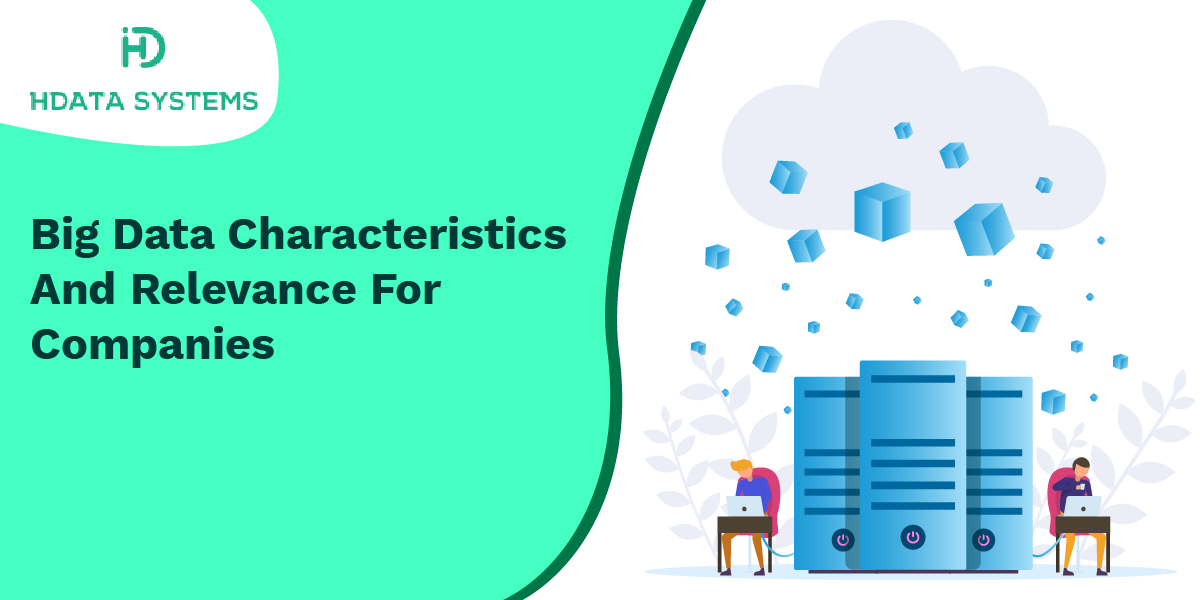The use of data, regardless of its type, typology or data format, is one of the central features of big data. This term describes what can easily be observed on a small scale. A definition of big data is based on various factors, which can be given individually or with several other characteristics. It can be large amounts of data that are far above average, complex data material, data that is changed too quickly and too regularly, or information of any kind that is difficult to process in terms of form and structure.
If you now consider order as an essential element for the utilization of data, a certain problem arises in the environment of big data. The standard software used, in particular the SQL database systems included in it, have a natural capacity limit due to their complexity and system structure. If this is achieved, each individual request bundles an enormous amount of computing capacity, which slows down the overall data management. If incomplete, unordered or structured data is added in many different aspects, the previous system does not represent an adequate basis for data analysis and the like.
Typical areas where big data is important
The fact that the amount of data, such as private and business are in circulation, has increased continuously on the basis of one's own personal usage behavior. Smartphones are ubiquitous and messaging services or social networks are now being added to classic communication via telephone and email. The information about each individual person is more diverse, distributed on several levels and more or less processed. While in a private context, it can still be controlled using conventional means, which depends on the type and regularity of the use of appropriate means of communication, companies in certain sectors face a real problem.
In order to give an overview of what big data means in everyday life and how it can be determined, the following is a small list of data sources that would make systematic data analysis within the framework of standard software impossible.
• Personalized customer or bank cards;
• Global navigation systems that require a high level of synchronization and interaction with countless other data sources;
• Surveillance systems that record extensive image and sound material;
• Intelligent home technology ("Smart Home");
• Electronic communication in general, via various access routes (smartphone, desktop computer, tablet).
Big Data Analytics - data analysis in an entrepreneurial context
It is one thing to collect data of all kinds and complexity - another thing to make it usable in business or conceptual terms. Big
data analytics is gaining increasing relevance in corporate management, because this involves finding solutions to also prepare, catalog and evaluate the corresponding data material. Conventional methods within business intelligence (BI) to deal with data or data packets reach their limits. To make matters worse, companies have to process and evaluate a large number of internal and external data. This goes hand in hand with correspondingly diverse systems, file formats, non-uniform validity of the data and many other factors.
The previous approach of using data warehouses and using relational databases here is only suitable to a limited extent. Because this requires a certain structure, which must be created if necessary - in addition, metadata must be generated, which in turn ties up storage and computing capacities. Not to mention the speed of such arithmetic operations, which don't make the whole thing seem economically viable.
Big Data Analytics therefore focuses on the development of new software, which must have the following features:
• Simultaneous processing of data records of various types and typologies
• Possibility of importing large amounts of data
• Analysis tools for evaluating data from various sources and complexity
In particular, the latter point is often named as a crucial function, because it allows countless data to be evaluated that are available in an unstructured form. For example, those from social networks.
Another approach is based on the synergy effects of a professional cloud solution. The main advantage is that the performance can be used flexibly and that system environments can be integrated and renewed more easily. However, this requires that the principles of data protection and data security are observed. Furthermore, employee training is required that sensitizes users to handling data within the cloud.
Conclusion
Big data describes a circumstance with which many companies already have difficulties today. There are now a corresponding number of products on the market that focus in particular on the collection and evaluation of qualitative data. These can be transformed and evaluated using graphics or tables in order to derive knowledge. This requires a closer understanding of the topic and technical know-how in order to use analysis tools effectively.
As with every new product launch, the implementation of such big data analysis tools is linked to a strong commitment of human and financial resources. It is therefore advisable to bundle competencies and responsibilities first and to analyze the possible benefits of such software, taking the existing IT architecture of the companyinto account.
Harnil Oza is a CEO of HData Systems - Data Science Company & Hyperlink InfoSystem a top mobile app development company in Canada, USA, UK, and India having a team of best app developers who deliver best mobile solutions mainly on Android and iOS platform and also listed as one of the top app development companies by leading research platform.


